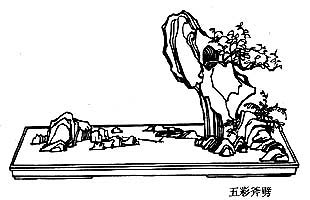Shi Jing 
 – Le Canon des Poèmes
– Le Canon des Poèmes
Le plus ancien recueil connu de poésie chinoise, plus de trois cents chansons, odes et hymnes. Tr. Legge (en) et Granet (fr, incomplète).
Shijing II. 6. (214)
Splendid are the flowers,
And the leaves are luxuriant.
I see these princes,
And my heart is entirely satisfied.
My heart is entirely satisfied.
Right is it they should have praise and prosperity !
Splendid are the flowers,
And deep is their yellow.
I see these princes,
Full of all elegance.
They are full of all elegance ; –
Right is it they should have every blessing !
Splendid are the flowers,
Some yellow, some white.
I see these princes,
Drawn by their four white steeds, black-maned.
They are drawn by their four white steeds, black-maned.
And the six reins are glossy !
To the left [they move], to the left,
And they execute the movement properly.
To the right [they move], to the right,
And they execute the movement properly.
They are possessed of the ability,
And right is it their movements should indicate it.
Legge 214

Le Canon des Poèmes – Shi Jing II. 6. (214) – Chinois off/on – Français/English
Alias Shijing, Shi Jing, Book of Odes, Book of Songs, Classic of Odes, Classic of
Poetry, Livre des Odes, Canon des Poèmes.
Le Canon des Poèmes, Les Entretiens, La Grande Étude, Le Juste Milieu, Les Trois Caractères, Le Livre des Mutations, De la Voie et la Vertu, 300 poèmes Tang, L'Art de la guerre, Trente-six stratagèmes
Bienvenue, aide, notes, introduction, table.
Index – Contact – Haut de page
